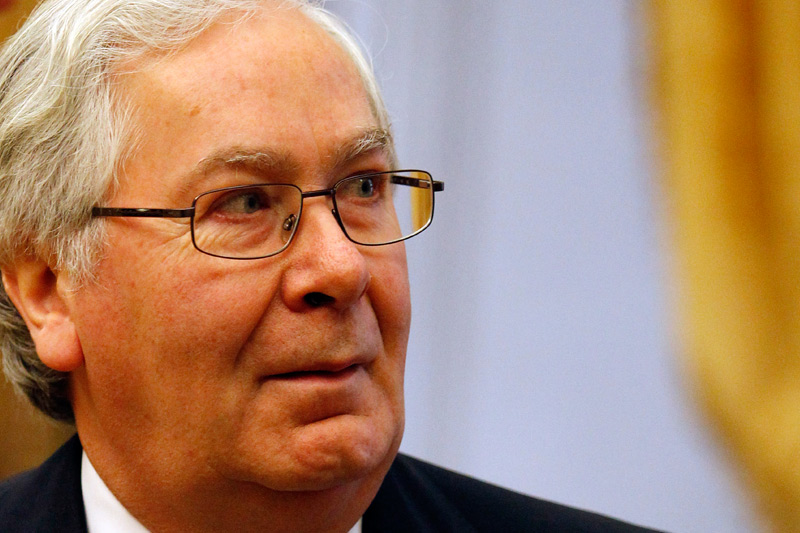Investing.com – The pound pared losses against the U.S. dollar on Tuesday, easing off the daily low after stronger-than-expected U.K. inflation data prompted Bank of England Governor Mervyn King to say the central bank could raise interest rates to bring down inflation.
GBP/USD pulled back from 1.6322 during early European trade, the daily low; the pair subsequently consolidated at 1.6380, still down 0.07% on the day.
Cable was likely to find support at 1.6165, the low of August 12 and resistance at 1.6475, the high of August 8.
The U.K. Office for National Statistics said earlier that the rate of consumer price inflation accelerated to 4.4% in July from 4.2% in June, above expectations for a 4.3% increase.
Core CPI, which excludes food, energy, alcohol, and tobacco costs increased by a seasonally adjusted 3.1% in July, broadly in line with expectations and up from 2.8% in June.
In an open letter to Chancellor of the Exchequer George Osborne following the stronger-than-expected inflation data, BOE Governor Mervyn King said the central bank could raise interest rates or increase asset purchases to bring down inflation towards the bank’s 2.0% target.
King added that recent turmoil in financial markets and ongoing sovereign debt issues in the euro zone posed “significant risk” to the U.K. economic recovery.
There is a risk of “severe stress and dislocation in financial markets and, were this risk to crystallize, it would have a significant impact on the U.K. economy,” King said.
The BOE Governor is obliged to write to the Chancellor of the Exchequer every three months that inflation is more than a percentage point above or below its 2.0% target.
Elsewhere, the pound was higher against the euro, with EUR/GBP slumping 0.44% to hit 0.8773.
The single currency came under pressure following the release of disappointing data on economic growth in Germany and the wider euro zone.
Later in the day, the U.S. was to produce official data on building permits and housing starts, as well as reports on import prices, the capacity utilization rate and industrial production.
GBP/USD pulled back from 1.6322 during early European trade, the daily low; the pair subsequently consolidated at 1.6380, still down 0.07% on the day.
Cable was likely to find support at 1.6165, the low of August 12 and resistance at 1.6475, the high of August 8.
The U.K. Office for National Statistics said earlier that the rate of consumer price inflation accelerated to 4.4% in July from 4.2% in June, above expectations for a 4.3% increase.
Core CPI, which excludes food, energy, alcohol, and tobacco costs increased by a seasonally adjusted 3.1% in July, broadly in line with expectations and up from 2.8% in June.
In an open letter to Chancellor of the Exchequer George Osborne following the stronger-than-expected inflation data, BOE Governor Mervyn King said the central bank could raise interest rates or increase asset purchases to bring down inflation towards the bank’s 2.0% target.
King added that recent turmoil in financial markets and ongoing sovereign debt issues in the euro zone posed “significant risk” to the U.K. economic recovery.
There is a risk of “severe stress and dislocation in financial markets and, were this risk to crystallize, it would have a significant impact on the U.K. economy,” King said.
The BOE Governor is obliged to write to the Chancellor of the Exchequer every three months that inflation is more than a percentage point above or below its 2.0% target.
Elsewhere, the pound was higher against the euro, with EUR/GBP slumping 0.44% to hit 0.8773.
The single currency came under pressure following the release of disappointing data on economic growth in Germany and the wider euro zone.
Later in the day, the U.S. was to produce official data on building permits and housing starts, as well as reports on import prices, the capacity utilization rate and industrial production.
